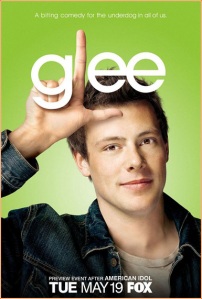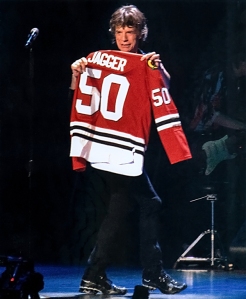
Glee star Cory Monteith died 13 July 2013 of drug and alcohol consumption.
On 13 July I was headed out of the city on a late train. Ever so slightly worried that I might fall asleep on the ride home, I pulled out my iPhone and opened Twitter. Most of my feed was comprised of angry tweets about the Zimmerman verdict. As anyone in America who hasn’t been living under a rock for the last week knows, George Zimmerman—a Florida neighborhood watchman—was acquitted of all charges for killing 17-year-old Trayvon Martin. While I feel passionately about many issues the Zimmerman trial has highlighted, I had been following the trial, so the only new news was the verdict; thus, it was failing to combat my heavy eyelids. I kept scrolling through my feed, searching for some kind of excitement. The news I discovered next certainly captured my attention, but not in a positive way.
Earlier that afternoon, Glee star Cory Monteith was found dead in a Fairmont hotel room in Vancouver. Police were holding a press conference and announced the autopsy would occur in the next few days. No foul play was suspected, though the actor had a history of drug usage, and had entered rehab in April. After a long day of meetings and catching up with old friends, it was 1 a.m. and I was suddenly wide-awake. While the news of the 31-year-old’s accidental death is certainly tragic, I didn’t know him personally, so why was I suddenly on the verge of tears? (For those of you who know me personally, you know how rarely I cry.)
The last four years, I have not been an every week in front of the television no matter what else is happening Glee watcher. It’s woven in and out of my life depending on my schedule and location. However, it’s had a somewhat subtle, yet profound impact on me. I must admit, the choice to cover Journey’s Don’t Stop Believin’ immediately caught my attention. I’ve been a Journey fan my entire life, and while I was at first critical of the show’s cover, I’ve grown to love it. And for many reasons, including our mutual love of Journey songs, I’ve also grown to love Glee. (Looking back on the night Cory died, the lyrics to my favorite Journey song seem incredibly fitting: “Just a small town girl, living in a lonely world. She took the midnight train going anywhere.”)
As a semi-crazy music fan I appreciated the variety of classic rock, top 40 and Broadway hits that the show has covered. I have bonded with friends over the songs and plotline, and even developed a Glee-watching routine with a few close friends from college. We’d gather in one of our dorm rooms or apartments on Thursday nights to escape the hectic, stressful, academic world we were so caught up in, eager to spend an hour watching covers of everything from Journey, to A Chorus Line, to Lady Gaga. We related to the characters—their relationships, their struggles, and their journeys. As we watched the actors build relationships—on screen and off—we, too, grew closer. Even the cheesiest or most unbelievable moments of the show in some way related to or touched our realities. My friends and I have grown up to Glee.
Never have I ever reacted so strongly to a celeb death as I did to the tragic passing of Cory Monteith. Maybe it’s because tragedy had finally touched something my friends and I had turned to in hopes of escaping the woes of reality for brief 60-minute increments? Glee has been both an escape from reality, as well as a mirror to our realities. But this was just too real. As I watched my feed fill up with sad posts—and prayed that the news was somehow an unfunny prank—I got a call from one of my roommates, who asked if I had heard the news. Neither of us had much to say. We were shocked. After a few minutes we hung up, and I reached for my headphones. I spent the rest of the trip listening to my selection of Glee songs and contemplating my reaction—at least I’d found something to keep me from drifting off and missing my stop.
Cory Monteith’s untimely death—which has been ruled an accident, caused by heroin and alcohol intake—is a reminder that tragedy does strike. It’s a reminder that tragedy is part of every journey. As I sit here typing, waiting for Glee’s season 1, episode 22 (the episode is fittingly called Journey) to load, I am thinking about the tattoo on my right foot. It says, “Life’s a journey not a destination.” It’s a lyric from an Aerosmith song—yet another indication of my crazy love for music. Tragedies like this one remind me of the role others play in our journeys; I’m also reminded that I am not alone with every step I take. If Glee has taught me anything, it’s taught me the importance of valuing those we love, and holding onto them as we live out our own journeys. I am thankful for Glee, for its endless life lessons and the friendships that have resulted from it. I am thankful for my friends, for the roles they continue to play in my journey. I am thankful for the opportunity to continue living my journey.
